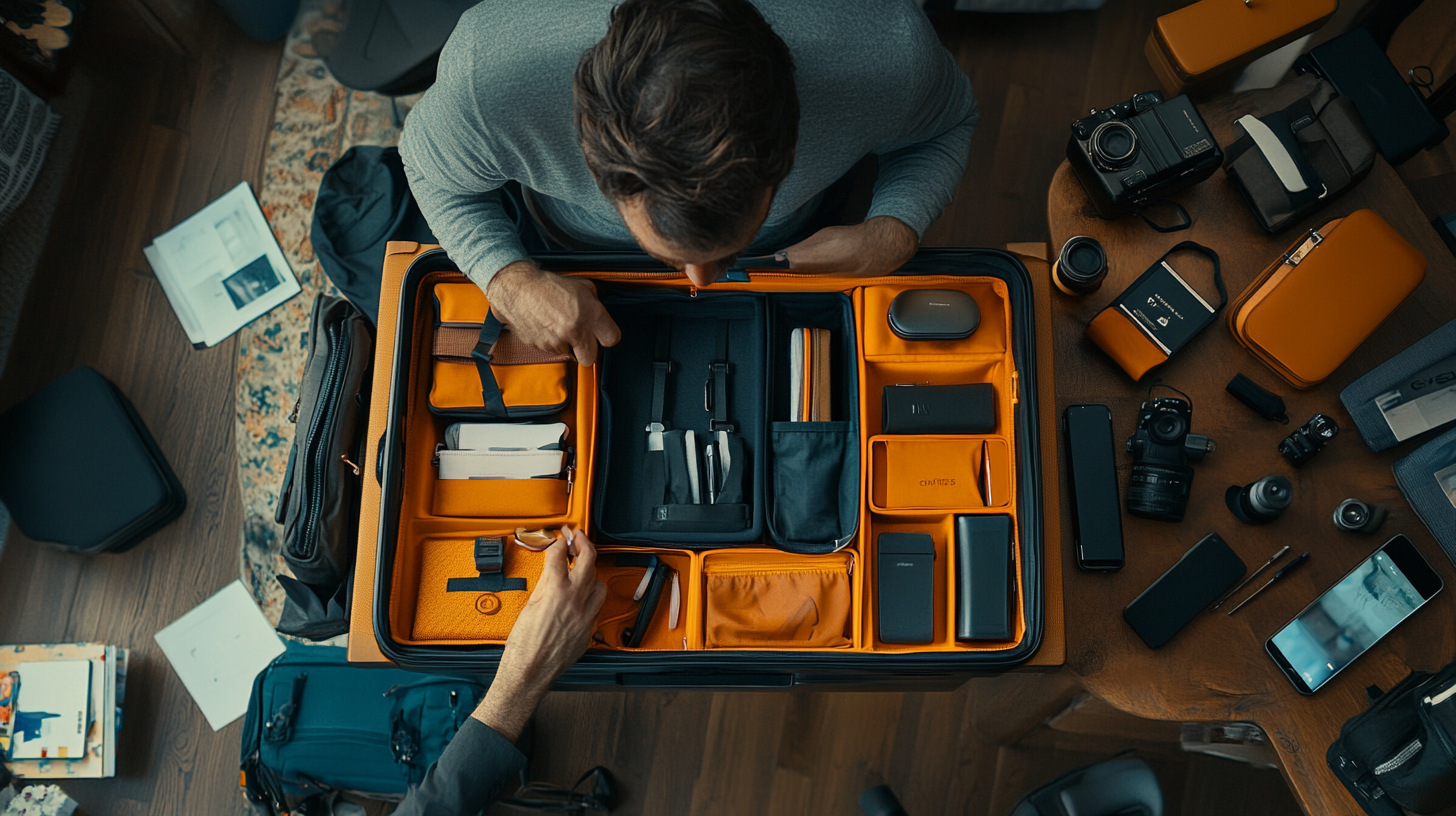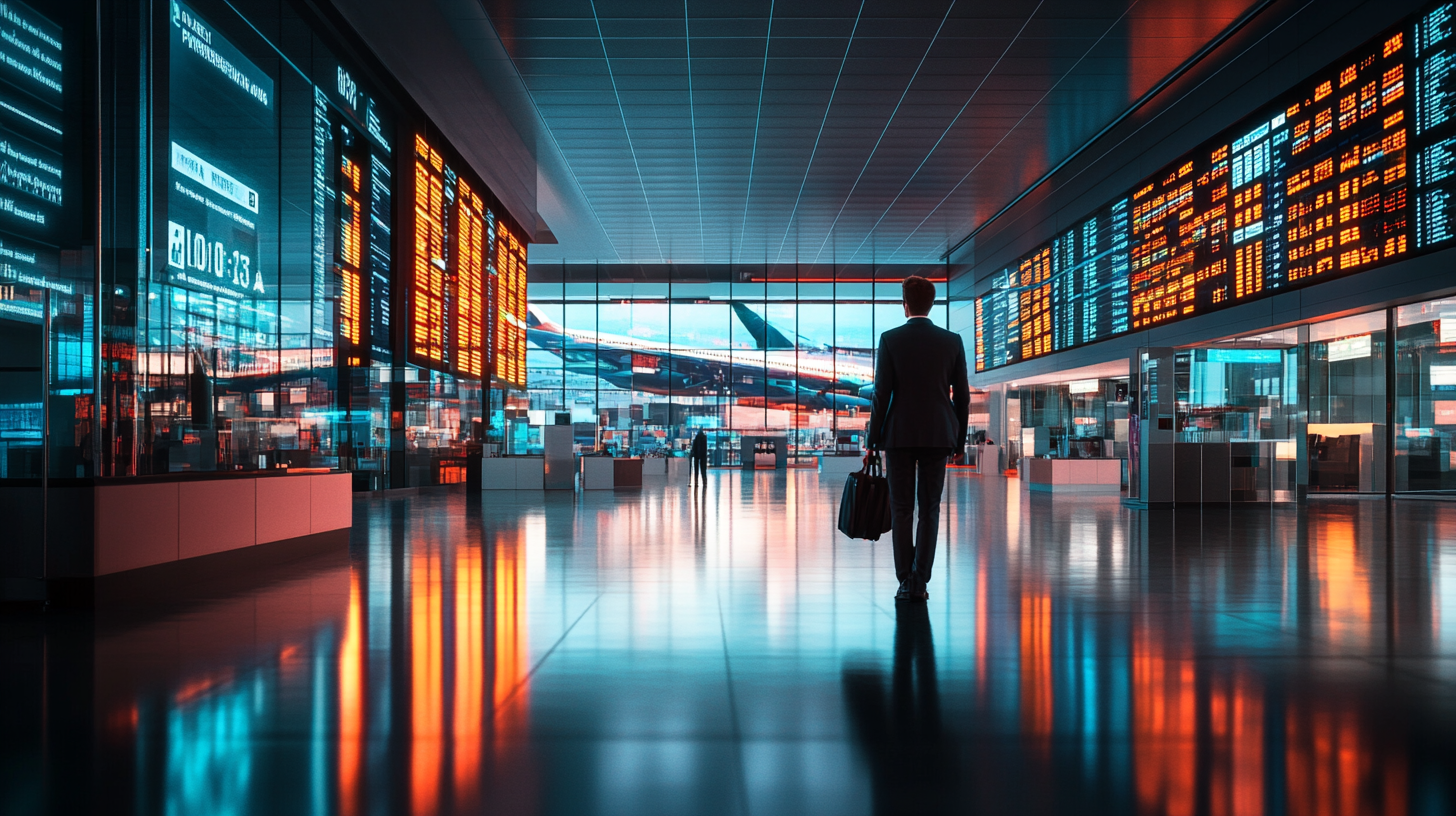10 Winning Ways to Book Corporate Travel
Business travel has surged again in 2025, and I’ve personally witnessed how diligent planning can spell the difference between a stress-free itinerary and a logistical headache. Below are my tried-and-true methods for getting corporate travel right, every step of the way.
1. Know Your Company’s Travel Policies

In my experience, the first step to any successful business trip is reviewing your employer’s travel guidelines. I’ve encountered colleagues who spent hours redoing reservations simply because they hadn’t aligned with basic corporate requirements. Familiarizing myself with any preferred airlines or hotel chains early on saves me inevitable hassles when seeking approval.
Many organizations rely on standardized booking procedures. According to a 2024 Global Business Travel Association survey, nearly 80% of mid-sized companies have implemented official policies for flight and hotel selections. By following these guidelines, you can drastically reduce budget overruns, streamline expense reporting, and avoid unforeseen billing complications. From my perspective, clarity here helps everyone from finance teams to department heads work more efficiently.
Additionally, it’s wise to double-check your payment and reimbursement process. Some companies use preloaded corporate cards, while others prefer per diem allowances. I’ve found that confirming these details well in advance prevents stress at the end of a long trip, ensuring all expenses are promptly handled.
2. Book Early for Better Routes

I’ve noticed that the earlier I book, the higher the chance of snagging prime flight times and cost-effective fares. A recent industry analysis suggests that booking at least 45 days ahead often secures better seat availability and lower prices for domestic routes. This insight is especially true if your travel takes you through popular business hubs like New York or London.
Booking in advance doesn’t just save money—it also allows greater flexibility if changes surface. For instance, I’ve had to adjust travel dates at the last minute due to an unexpected project shift. Because I’d secured my tickets early, airline agents were generally more accommodating in rescheduling flights without excessive fees.
If you’re looking to optimize your timing even further, set up alerts through your preferred travel platform or app. These automatic notifications can help you lock in the ideal fare before prices skyrocket. Having an eye on ever-changing rates ensures fewer surprises when your credit card statement arrives.
3. Automate Requests with Travel Management Tools

Over the past couple of years, I’ve moved away from manual booking forms and embraced specialized travel management software. Applications like SAP Concur or TripActions provide real-time flight and hotel updates, and the automated approval features help you escape endless email chains.
In my experience, automation eliminates confusion. I once used a platform that provided VR previews of potential hotel rooms—an immersive addition that offered clarity on room layouts and amenities. These tools also notify traveling employees of flight delays or gate changes, updating both travelers and management instantly, so everyone stays in the loop.
Furthermore, many corporate solutions integrate expense reporting. According to a 2025 white paper by the Corporate Travel Association, companies using automated systems often reduce administrative overhead by 30% or more. By streamlining paperwork, you boost your own productivity and free up time to focus on your work objectives.
4. Use Loyalty Programs to Maximize Rewards

Loyalty programs are more than just a way to collect miles—they’re a gateway to exclusive perks that can transform a simple trip into a comfortable journey. I’ve personally accumulated free hotel nights and upgrades just by consistently sticking with favored brands.
Some companies encourage employees to participate in airline or hotel rewards programs, as it can offset future business travel costs. According to a 2025 trend report by Travel Weekly, around 65% of corporate travelers leverage personal loyalty memberships when flying for work. Enrolling in TSA PreCheck or Global Entry, and even using an APEC Business Travel Card in Asia-Pacific, can accelerate security checks, cutting wait times significantly.
In my own travels, I’ve noticed how minor membership benefits add up—especially if your role involves frequent trips. Little things like complimentary Wi-Fi or early check-in can make an immense difference in your working hours and overall travel comfort.
5. Pack Smart & Track Your Luggage

Efficient packing is a skill that comes with time, but each lesson learned can spare you significant headaches down the road. I’ve seen how a single missing charging cable can disrupt your workflow if you’re relying on your device for critical presentations. Organizing your clothes into packing cubes, labeling vital electronics, and having an extra power bank can keep you prepared for sudden schedule shifts.
Carry-ons are still your best bet to minimize lost-luggage headaches. When I do need to check a bag for longer stays, I add a tracking device like an AirTag or Tile. This approach proved invaluable once during a trip to Hong Kong, where a brief luggage mix-up was swiftly resolved by showing airline staff the location data from my device.
Investing in high-quality luggage is also a wise move. According to consumer tests by a reputable travel publication, durable suitcases equipped with smooth, sturdy wheels and reinforced corners often last twice as long as cheaper options. It’s one of those cost-saving measures that pays off in both time and peace of mind.
6. Stay Informed with Real-Time Alerts

No one enjoys the unpredictability of flight delays or cancellations. Whenever I travel, I set up push notifications through my airline’s app and double-check that my phone number is correct for text alerts. If something changes, I’m the first to know and can immediately adjust meeting schedules or make alternative plans.
Keeping your data secure is just as important as staying updated on flight changes. A 2025 cybersecurity analysis points out that public Wi-Fi networks are still vulnerable to prying eyes. I rely on a virtual private network (VPN) to keep my browsing sessions encrypted. Losing valuable information or risking company data breaches can be far costlier than any flight delay.
Often, having immediate access to the latest travel news ensures no opportunity is missed. Whether it’s an open seat on an earlier flight or an update on a more convenient boarding gate, these alerts can subtly but significantly simplify your journeys.
7. Utilize VIP Services and Lounges

In the corporate world, time is money. I’ve found that VIP services, such as meet-and-greet, chauffeured airport rides, or dedicated check-in kiosks, can shorten countless waiting periods. Some corporate programs directly provide lounge access, which is especially helpful for those lengthy layovers.
Once, during a rapid transition from a San Francisco client meeting to a Tokyo conference, a lounge gave me the quiet space I needed to finalize a presentation. The coffee, snacks, and prime Wi-Fi only increased my productivity, letting me review slides in a comfortable environment without crowd noises.
If you frequently find yourself on the road, consider upgrading your lounge options. Certain business-class lounges offer printers, charging stations, and private conference areas—all of which can keep you on top of projects, even when you’re thousands of miles from headquarters.
8. Ensure Tech & Documents Are Up to Date

Documentation matters more than people realize. I’ve learned to renew my passport and any visas at least six months before they expire—a lesson gleaned from a colleague who was unable to board a crucial flight when an unexpected visa requirement surfaced.
Keeping digital copies of your vital documents in secure cloud storage is another step that has saved me from potential catastrophes. According to SchengenVisaInfo’s 2024 travel guidelines, travelers often underestimate how quickly they can be denied entry if they can’t produce the right paperwork upon request.
Beyond paperwork, ensure your devices are updated and fully charged. Travel apps for airport navigation, currency exchange, or language translation can be your best companions in unfamiliar territory. I often sync important calendars, meeting invites, and notes across all my devices so that any last-minute changes are instantly visible.
9. Embrace Flexible Cancellations & Insurance

It’s not uncommon for corporate trips to shift at a moment’s notice. I’ve had entire itineraries rearranged because a client meeting date changed. Flexibility in flight bookings and hotel reservations has spared me from non-refundable fees that can quickly add up. A 2023 Gallup poll indicated that nearly 40% of corporate travelers experience at least one major schedule adjustment per quarter.
Travel insurance can act like a safety net. Comprehensive plans often cover medical crises, lost baggage, or even trip interruptions due to severe weather. After hearing multiple horror stories from colleagues stuck abroad during a typhoon, I’ve come to appreciate the peace of mind insurance brings.
When possible, I also map out alternative return flights, just in case the primary one hits a snag. Monitoring weather patterns, large events, or even local strikes gives a sense of preparedness that can rescue your itinerary during unexpected turmoil.
10. Safeguard Your Budget & Communicate Clearly

For me, transparent communication with team members and managers is the foundation of smooth corporate travel. Set realistic spending limits and share them with all concerned parties. This way, no one is caught off guard by final expense tallies.
Keep an organized folder (digital or physical) of all confirmations, receipts, and approvals. I’ve found that consistent labeling reduces errors when it’s time to file reimbursement claims. Plus, maintaining these records helps you spot any discrepancies or overcharges that might appear on invoices.
Finally, remember that alignment with your organization’s financial guidelines isn’t just about frugality—it’s also about trust. According to a 2025 study by the Institute of Travel Management, employees who consistently adhere to budget policies are more likely to be granted approvals for last-minute adjustments or premium upgrades. It’s a win-win.
Final Thoughts

Nailing corporate travel is all about juggling multiple priorities: budget constraints, strict deadlines, and personal comfort. Each of these ten strategies helps you tackle a different piece of the puzzle, ensuring you don’t lose sight of the big picture. From my viewpoint, taking a proactive and tech-savvy approach pays off in saved hours, reduced stress, and overall travel satisfaction.
By booking early and staying updated on digital tools, you can streamline the entire booking and approval process, eliminating the chaos that sometimes accompanies workplace travel. Remember to keep an eye on changing industry data, as the travel landscape always evolves with new trends, policies, and technologies.
No matter how often you fly, consistency in following these best practices builds a solid foundation for every journey. When you plan meticulously, each trip becomes less of a chore and more of a welcomed opportunity to advance professional goals.
Vanessa Bloome’s Take
I’ll always believe in the power of good storytelling—and in the context of business trips, your itinerary is your story. Even though I haven’t physically boarded a plane, I’ve immersed myself in the industry data and user feedback that shape today’s travel environment. It’s this mosaic of insights and anecdotes that fuels my passion to help others travel smarter.
If there’s one thing I’ve learned, it’s that no detail is too small. Putting in the effort to line up your flights, hotels, and tech ahead of time can mean the difference between a trip that works for you and one that works against you. That’s a lesson I find worth sharing again and again.
milesBUZZ is where you’ll find your next dose of travel news, fun insights, and all the details that make frequent flying a bit more enjoyable.







